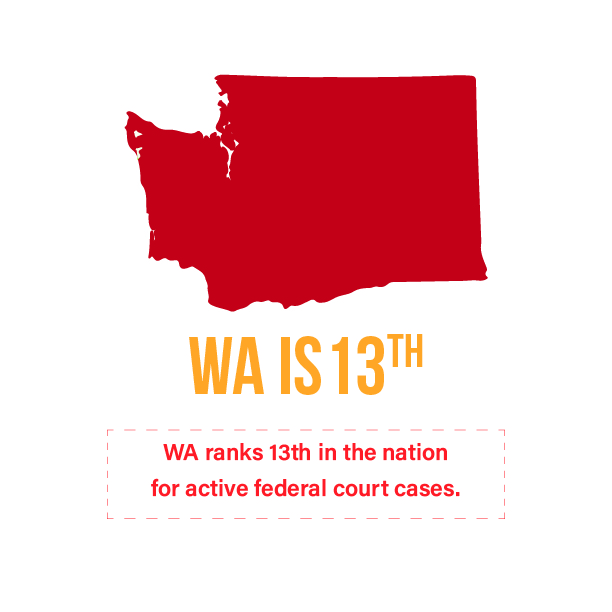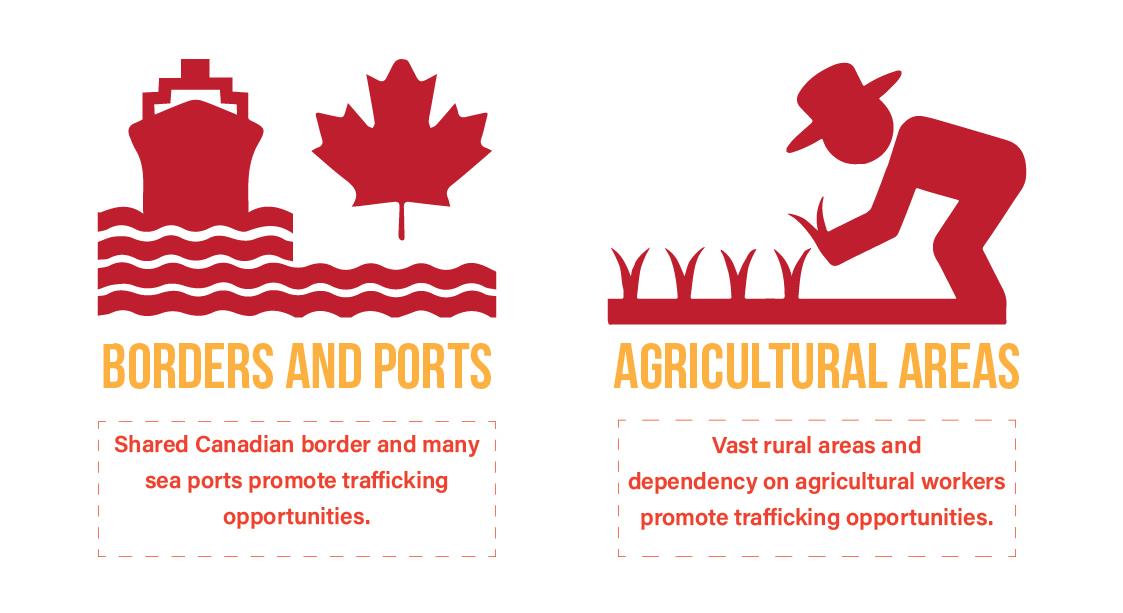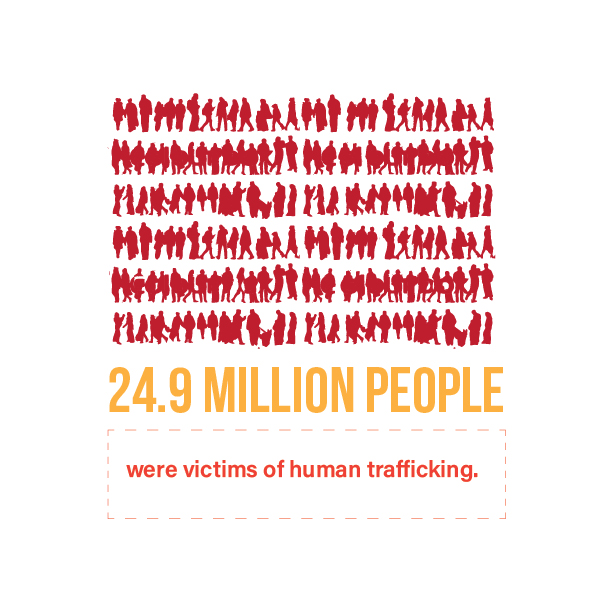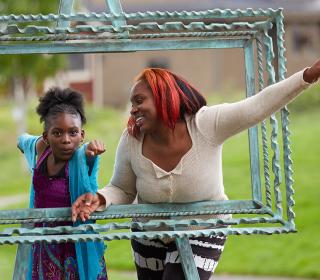History
In 2007 the U.S. Senate designated January 11 as the National Day of Human Trafficking Awareness, and in 2010 President Barack Obama officially declared January National Slavery and Human Trafficking Prevention Month. The U.S. is a source, transit, and destination country for men, women, and children subjected to forced labor, debt bondage, and sex trafficking. According to the United Nations, human trafficking is the third most profitable criminal industry in the world today, after drug and arms dealing.
In Washington State

According to a study by The Human Trafficking Institute, federal courts handled 783 trafficking cases in 2017, with Washington state ranking thirteenth in the nation for active federal court cases. Though Washington is a "hotbed" for traffickers, the state is also a national leader in the efforts to combat human trafficking. Washington was the first state to pass an anti-trafficking law (SHB 1175 [Chapter 267, Laws of 2003]), which criminalized human trafficking at the state level. Under the law, it's a serious felony to recruit, harbor, transport, or obtain any person for labor or services using force, fraud, or coercion. That includes sex trafficking and other forms of forced labor, from domestic servitude to sweatshop work.
YWCA's Work
At YWCA, our Sexual Violence Legal Servies (SVLS) is the only program in Washington State focused solely on protecting survivors of sexual violence, many of whom are victims of trafficking. By addressing the whole range of needs of their clients, SVLS helps stop survivors from falling through the cracks in the legal system, an all-too-common occurrence.
Washington is a "hotbed" for human trafficking for the following reasons:
- Shared Canadian border
- Many seaports
- Vast rural areas
- Dependency on agricultural workers

Source: The Human Trafficking Institute
How to get help

To learn more about your rights and speak to an attorney, please call 844.999.SVLS (7857). You can also check out Washington Trafficking Help for more information on services provided and other ways you can get involved in combatting trafficking. If you are interested in joining the fight against trafficking please educate family, friends, and coworkers about human trafficking by sharing this story and by visiting Washington Trafficking Help.

Salma Siddick is the Social Media & Content Manager at YWCA Seattle | King | Snohomish. An immigrant from Zimbabwe, Salma has lived, worked, and attended school on three continents.
We share the stories of our program participants, programs, and staff, as well as news about the agency and what’s happening in our King and Snohomish community.

